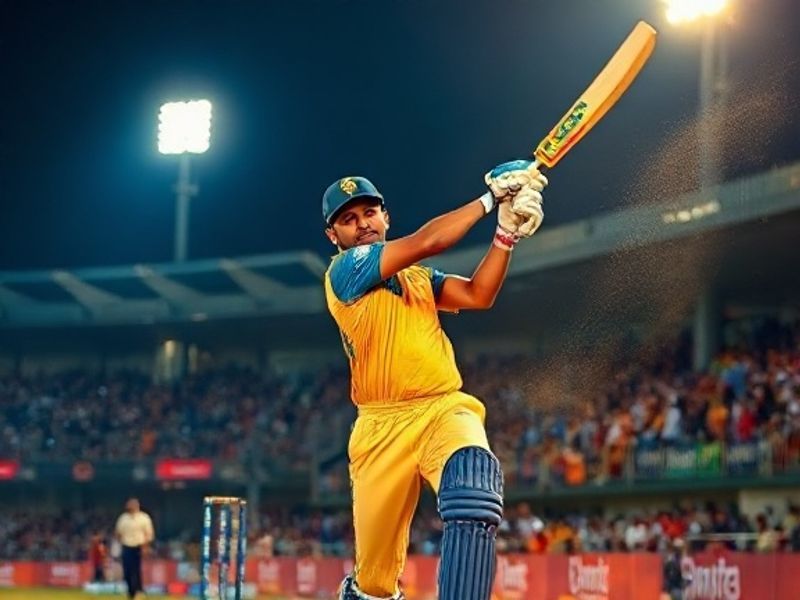The Abhishek Sharma Phenomenon: How One Name Became India’s Greatest Export (and Global Inside Joke)
**The Accidental Everyman: Why Abhishek Sharma Matters More Than Your Portfolio**
*From our Bureau of Universally Generic Names with Uniquely Specific Consequences*
NEW DELHI—In a world where 47% of global GDP depends on men named Abhishek Sharma making decisions they’ll regret by Tuesday, it’s remarkable how few people outside the Indian subcontinent can distinguish one from another. Yet here we are, watching yet another Abhishek Sharma reshape the geopolitical landscape with the casual indifference of someone ordering chai.
The latest Abhishek Sharma—because let’s face it, there’s always a latest—happens to be the 28-year-old Indian cricketer who just spent the better part of a week reminding England that their empire-building skills haven’t improved since 1947. His 137-run assault at the Rajiv Gandhi Stadium wasn’t merely a sporting achievement; it was a metaphorical middle finger to every British pensioner who still refers to Mumbai as “Bombay” while complaining about the weather in Marbella.
But here’s where it gets deliciously absurd: somewhere in Silicon Valley, a venture capitalist named Abhishek Sharma just invested $50 million in an AI startup that promises to predict which Abhishek Sharma will matter next. The algorithm, reportedly, has a 12% success rate—marginally better than astrology and significantly worse than a drunk uncle’s political predictions at Thanksgiving.
The global implications are staggering, or they would be if anyone could keep track. When Abhishek Sharma the pharmaceutical executive raised drug prices 400% in New Jersey, Abhishek Sharma the activist in Mumbai organized protests that trended higher than Beyoncé’s latest album. Meanwhile, Abhishek Sharma the Dubai-based crypto bro was too busy laundering money to notice, though he did send thoughts and prayers via WhatsApp from his yacht named “Decentralization.”
This isn’t merely about nominal coincidence—it’s about the beautiful absurdity of globalization itself. In an era where your cab driver in Berlin, your cardiologist in Toronto, and your potential assassin in Manila could all share the same name, we’ve created a perfect storm of bureaucratic confusion. The UN, in its infinite wisdom, maintains a database of “Persons of Interest” that currently lists 847 Abhishek Sharmas, causing mild panic whenever someone accidentally hits “reply all” on sanctions emails.
The real tragedy? For every Abhishek Sharma making headlines, there are 10,000 others living gloriously anonymous lives—mortgage brokers in Mississauga, street food vendors in Jaipur, failed poets in Prague who tell women at bars that they’re “big in Bollywood” while paying for overpriced cocktails with maxed-out credit cards. Each one carries the weight of potential greatness, or at least the potential to be confused with someone great.
What makes this particular Abhishek Sharma moment special is its perfect encapsulation of modern India’s contradictions. Here stands a left-handed batsman from Punjab who learned his craft on dusty pitches, now representing a nation that simultaneously launches Mars missions while arguing about who can eat what meat. His success feeds into India’s carefully curated narrative of emerging superpower status—because nothing says “global dominance” quite like beating former colonial masters at their own game, then celebrating with sponsored Instagram posts for energy drinks.
As climate change accelerates and democracy retreats, perhaps our only hope lies in the sheer statistical probability that somewhere, somehow, the right Abhishek Sharma will emerge to save us from ourselves. Until then, we’ll continue confusing our Abhishek Sharmas with the same casual indifference we bring to distinguishing between our various apocalypses—nuclear, environmental, or merely existential.
The revolution will be televised, tweeted, and probably attributed to the wrong Abhishek Sharma.







